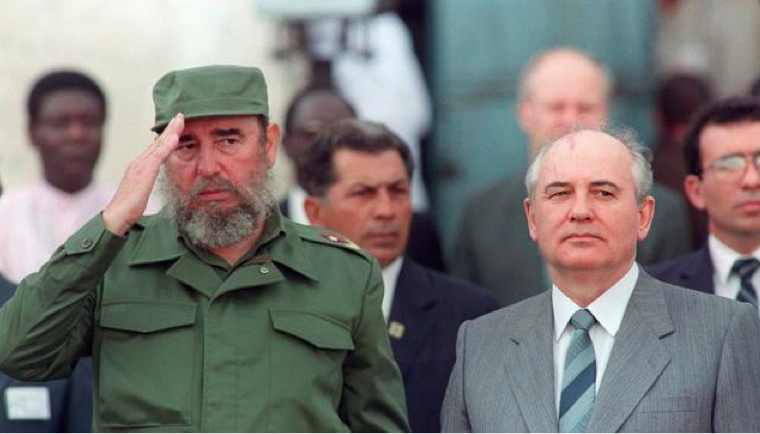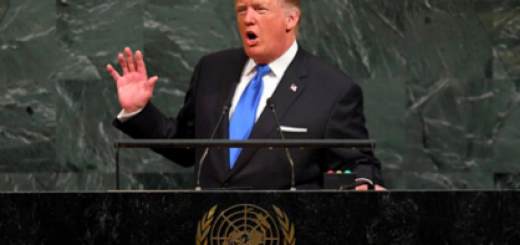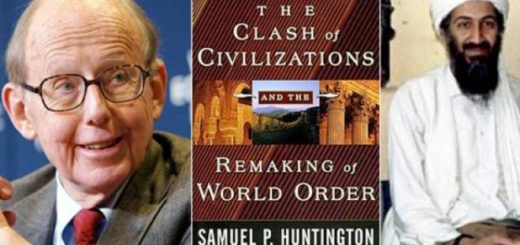Comrade Fidel Castro – A saviour for many, an oppressive dictator for others

 Shashi Tharoor, in Hindustan Times, Nov 26, 2016
Shashi Tharoor, in Hindustan Times, Nov 26, 2016
(Note: Fidel Castro passed away at 90 after ruling Cuba for 47 years. Though he handed over the rule to his younger brother Raul in 2006 he strode the communist horizon like a colossus till his death. He embodied the ideals of the socialist revolution he ushered in to the island state with his triumph in 1959.
It was true that he was an idealist, a Champion of messianic international socialism, an outspoken opponent of imperialism and colonialism, but at home in Cuba he was a ruthless dictator who suppressed freedom of speech and didn’t hesitate one bit to send political trouble-makers to labor camps or summary executions. Yet he brought to Cuba “high education, free health care, the lowest infant-mortality rates in the world and an internationalist foreign policy that saw Cuban doctors serving in Angola and Cuban troops fighting in Mozambique.”
It is said that way to hell is paved with good intentions. In the case of Fidel, his march to a socialist paradise and dictatorship of the working class, was paved with any number of humanitarian good works for the poor and submissive people in Cuba. No pain no gain! Both are part of life, also of governments. Success depends on balancing pain  and gain, in a world made up of nights and days in equal measure or advantage gain and light. james kottoor, editor)
and gain, in a world made up of nights and days in equal measure or advantage gain and light. james kottoor, editor)
This file (featured) photo taken on April 2, 1989 shows Cuban president Fidel Castro (L) welcoming general secretary of the Communist Party of the Soviet Union Mikhail Gorbachev (R) during the official ceremony for Gorbachev's arrival in Havana. (AFP Photo)
summary executions, imprisonment of dissidents without trial, ruthless suppression of freedom of speech, and labour camps for political trouble-makers. He ran a one-party state that brooked no dissent and dealt harshly with disagreement. “Revolutionary justice,” the failed lawyer famously said, “is not based on legal precepts, but on moral conviction
”The commander in chief of the Cuban revolution”, as his brother, President Raul Castro, called him, has died at the age of 90. Fidel Castro, who strode the world for nearly five decades as a colossus in military fatigues, unkempt beard and jaunty soldier’s cap, is no more.
It was a demise prefigured by the great man himself. In April this year, he emerged from seclusion to deliver a memorable speech on the final day of Cuba’s Communist Party congress. “I’ll soon be 90,” the former President said, adding that he did not expect to last much longer: “to all, our turn must come.”
For the previous ten years he had no longer been active on the national or world stage, since first handing over temporary charge of the country to Raul in 2006. (Raul formally assumed the Presidency in 2008). All the world had heard of him was through his writings in the state media under the rubric “Reflections of Comrade Fidel”. But for 47 years before that, Fidel Castro was Cuba.
Since starting a guerrilla movement against the corrupt and plutocratic Batista regime alongside the legendary Che Guevara in 1956, Castro – “Fidel” to his admirers and critics — embodied the ideals of the socialist revolution he ushered in to the island state with his triumph in 1959.
Surviving the CIA-sponsored Bay of Pigs invasion by Cuban exiles, and a crippling US embargo that starved the island state of lucrative American trade and tourism, Castro ran a Marxist-Leninist state closely aligned with the Soviet Union. It featured high education, free health care, the lowest infant-mortality rates in the world and an internationalist foreign policy that saw Cuban doctors serving in Angola and Cuban troops fighting in Mozambique.
Castro’s rule also featured summary executions, imprisonment of dissidents without trial, ruthless suppression of freedom of speech, and labour camps for political trouble-makers. He ran a one-party state that brooked no dissent and dealt harshly with disagreement. “Revolutionary justice,” the failed lawyer famously said, “is not based on legal precepts, but on moral conviction”.
“So far from God and so close to the United States,” the misfortune bewailed by Mexican President Porfirio Diaz about his own country, could well have applied to Castro’s Cuba. Godless Communism prevailed, but the proximity of the US implied both an allurement and a threat.
Read: Fidel Castro: A revolutionary who brought India and Cuba closer
After its disastrous sponsorship of the failed Bay of Pigs invasion in 1962, the CIA attempted to assassinate him with such devices as cigars packed with explosives. The reciprocal support he received from the Soviet Union nearly precipitated a global nuclear holocaust during the Cuban Missile Crisis of 1962.
But Fidel Castro survived them all. He grew into the elder statesman of international socialism, with a pugnacious brand of rhetoric that included long-winded and flowery speeches, some of which I heard during his frequent appearances at the United Nations General Assembly.
A revolutionary who brought India and Cuba closer
Fidel Castro was the star of 1983 summit of the Non-Aligned Movement (NAM) which took place in India. (HT File Photo)
India and Cuba are 14,000 kilometres apart. But for the most part of their bilateral ties, that distance was easily overcome, mostly because of one leader who evoked such awe in India: Fidel Castro.
At one UN summit, a five-minute time limit had been imposed upon Heads of Government that no one expected Castro to adhere to. With his impish sense of humour, Fidel ostentatiously placed a red handkerchief over the blinking light installed to warn speakers their time was up, signalling his apparent intention to ignore it – and then went on to conclude his remarks briskly in three minutes. It was a bravura show of playing to the gallery.
I enjoyed his company when I accompanied UN Secretary-General Kofi Annan to the South-South Summit Castro hosted in Havana in 1999, and had the opportunity to join Annan’s meetings with the great leader. Though very much a senior statesman at 73, Castro brimmed over with energy and curiosity, asking Annan questions and writing notes of his responses like an eager schoolboy.
His intellectual curiosity was inexhaustible, and his eyes sparkled with interest and delight. Charisma oozed from every pore. My travels with Annan allowed me meetings with many famous world leaders, but Fidel Castro, it was clear, was larger than life even at close quarters.
Today that life has been exhausted, but what Fidel stood for, even if it is now eclipsed, captured the ideals and challenges of an era. The passions of the last decades of the Cold War period – idealist socialism and humanitarianism, messianic internationalism, opposition to imperialism and colonialism – inspired many to regard him as a saviour. The injustices of Cuba under Communist rule and the ruthless suppression of dissent led as many to denounce him as an oppressive dictator.
Cuba’s social achievements were considerable, but the limitations of Fidel’s economic approach became apparent with the collapse of the Soviet Union, which could no longer keep Cuba’s heavily subsidised economy afloat. The triumphant return of American capitalism to Cuba may yet mark his final epitaph.
Yet no history of the world in the 20th century would be complete without an appreciation of Fidel Castro and of what he stood for. Political greatness is always contextual, emerging from a particular time and historical period, and even if his record stands discredited in many people’s eyes today, Fidel was undoubtedly amongst the greatest leaders of his era.

















